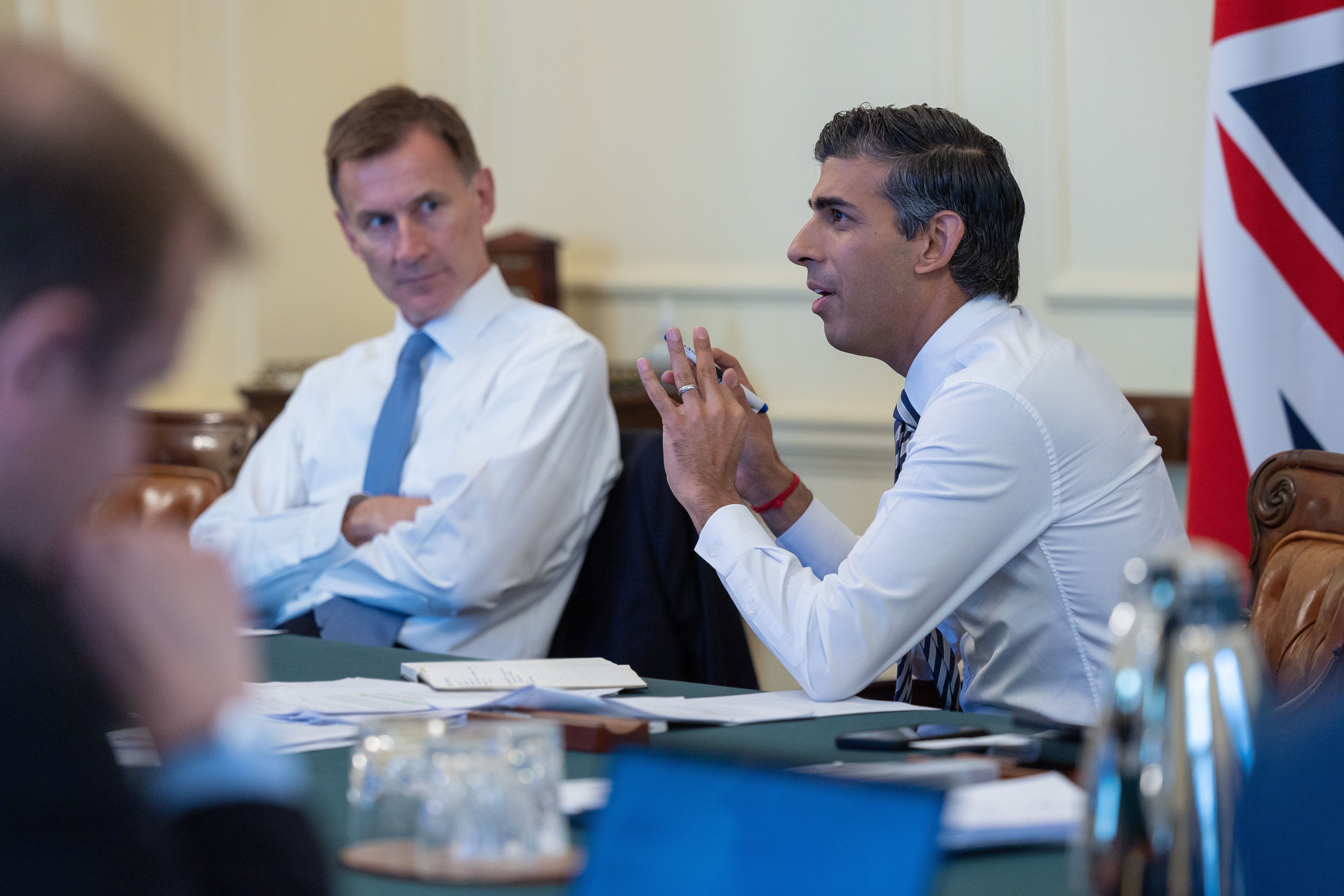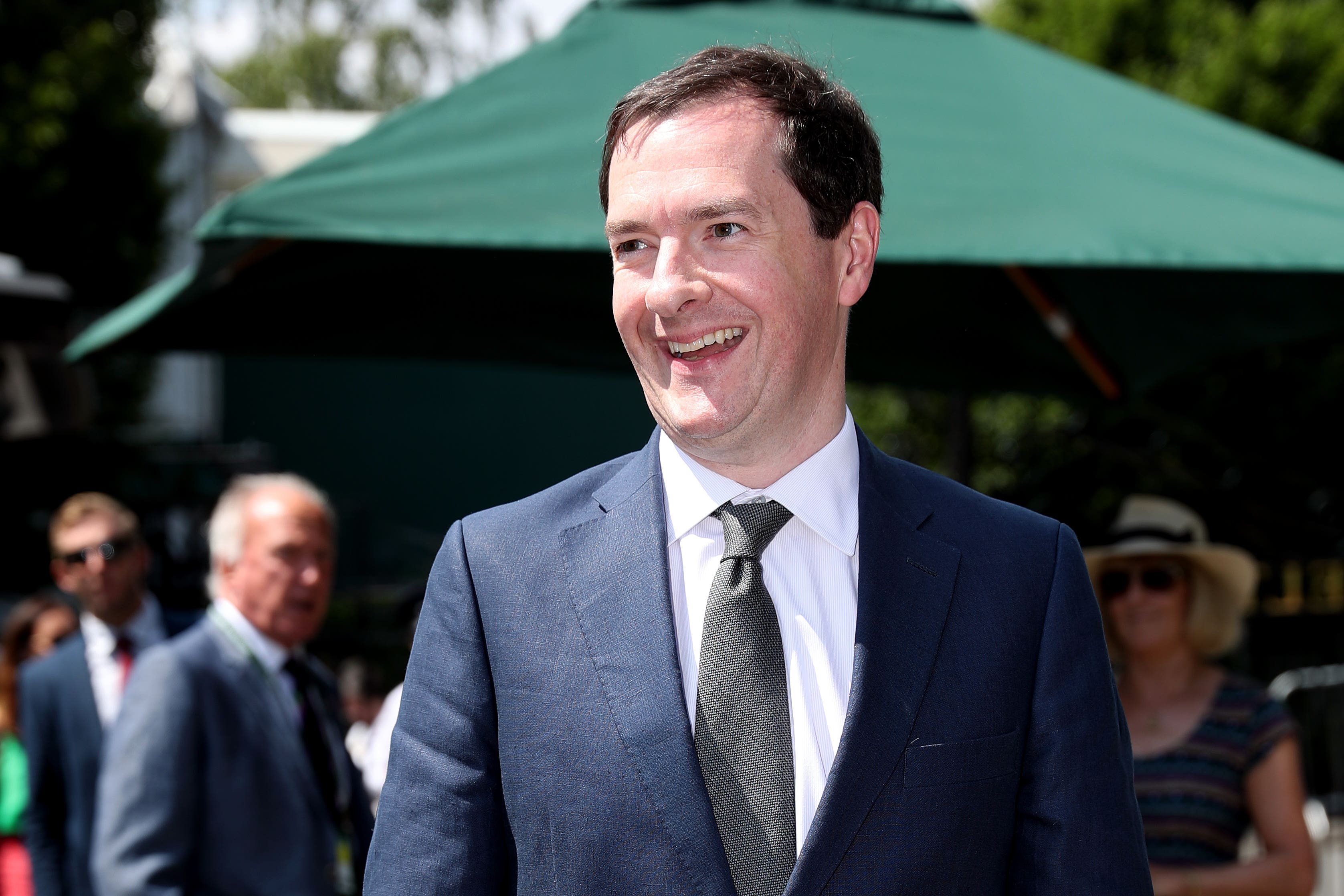Rishi Sunak warned against return to austerity with public spending cuts at next mini-Budget
Think tank finds PM has ‘fiscal space’ to deliver support totalling billions in cost of living crisis

Rishi Sunak and Jeremy Hunt have “fiscal space” to avoid cuts to public spending in the next mini-Budget, an economic think tank has said.
The prime minister and chancellor also have the chance to provide help with the cost of living crisis without busting the government’s tax-and-spend rules, the Institute for Public Policy Research says.
In a report released today, the IPPR said that cuts to spending are not inevitable, but would represent a “political choice” to return to the austerity pursued by Conservative governments in the “lost decade” of the 2010s, risking lasting harm to livelihoods and growth.
The think tank said Mr Sunak and Mr Hunt can safely spend an additional £42bn on support with energy bills over the coming year without fuelling inflation – and can increase that by a further £40bn if they are willing to extend windfall taxes on oil and gas giants and impose a wealth tax on the rich.
Reports suggest that Mr Sunak is considering a 50/50 split between tax rises and spending cuts in the 17 November autumn statement to fill a fiscal gap estimated at £40bn.
The Resolution Foundation think tank today forecast that he will have to increase taxes in order to get national debt falling as a share of GDP by 2026-27.
This could perhaps be achieved by restoring the 1.25 per cent hike to national insurance cancelled by his predecessor Liz Truss, or by extending the freeze on income tax thresholds to drag more people into higher rates.
But IPPR experts Carys Roberts and Carsten Jung said it was right at a time of crisis to allow debt to rise in order to provide support for households and businesses.

And they said that targeted help with energy bills over the coming year will drive the economic growth needed to ensure that debt is falling as a percentage of GDP in the medium term.
The government’s £60bn energy price guarantee, which delivers an average £2,500 annual cap on household bills for electricity and gas, is due to run out in April.
Ministers have suggested that a more targeted system for the most vulnerable will be introduced after that point, but details are yet to be revealed.
The IPPR report said that Mr Sunak has room to spend up to £44bn on a targeted scheme for both domestic and business users at most need lasting to the end of 2023.

With the IMF predicting UK growth of up to 2 per cent by 2025-26, Mr Sunak could run a primary deficit of £49bn while still hitting his fiscal target of debt falling as a proportion of GDP in the medium term, said the think tank.
“After turmoil in the markets following recent government decisions, the new prime minister and chancellor have both spoken of ‘difficult decisions’ to come,” said Ms Roberts, executive director of the IPPR.
“They are implying that reductions in spending will be inevitable – but that is a political choice which will undermine the foundations of our economy and widen inequalities.
“There is a far more sensible alternative. Our blueprint, published today, shows government how to avoid fuelling inflation – already highest among G7 countries – in the short term, and deliver a healthy future for public finances and the people of the UK in the long term”.
IPPR senior economist Mr Jung added: “We face a serious economic situation with inflation running high and people’s livelihoods in peril.
“But spending cuts will not get us out of this crisis. On the contrary, the right policy mix can tame inflation and stabilise the economy at the same time – without spending cuts.
“The government has significant fiscal space to spend on household support and the economy, if combined with some tax increases and gentle interest rate rises.
“The lost decade following the financial crisis has shown us that austerity enduringly harms people and growth. It is wrong to frame cuts as inevitable – they are not."







Join our commenting forum
Join thought-provoking conversations, follow other Independent readers and see their replies
Comments